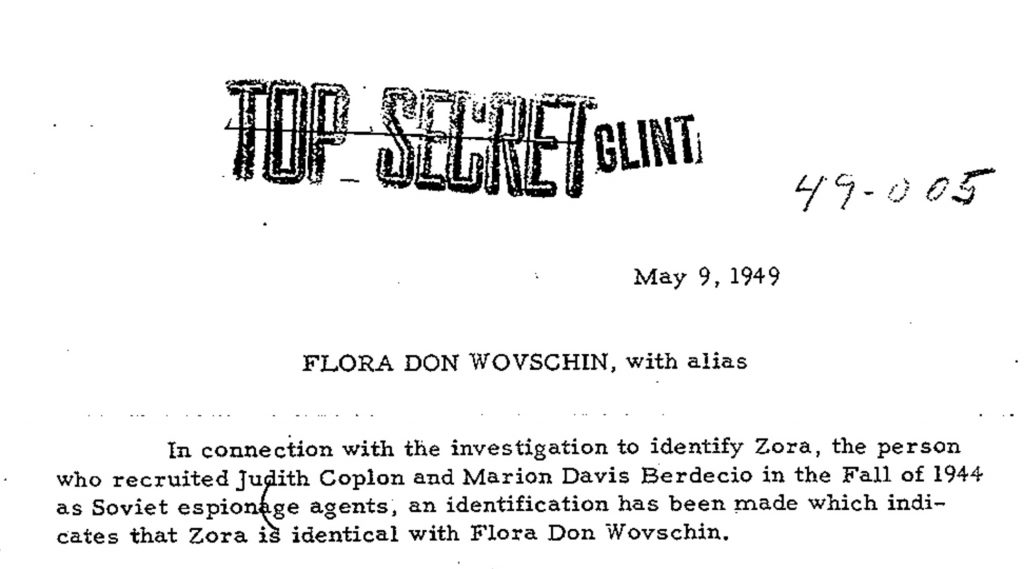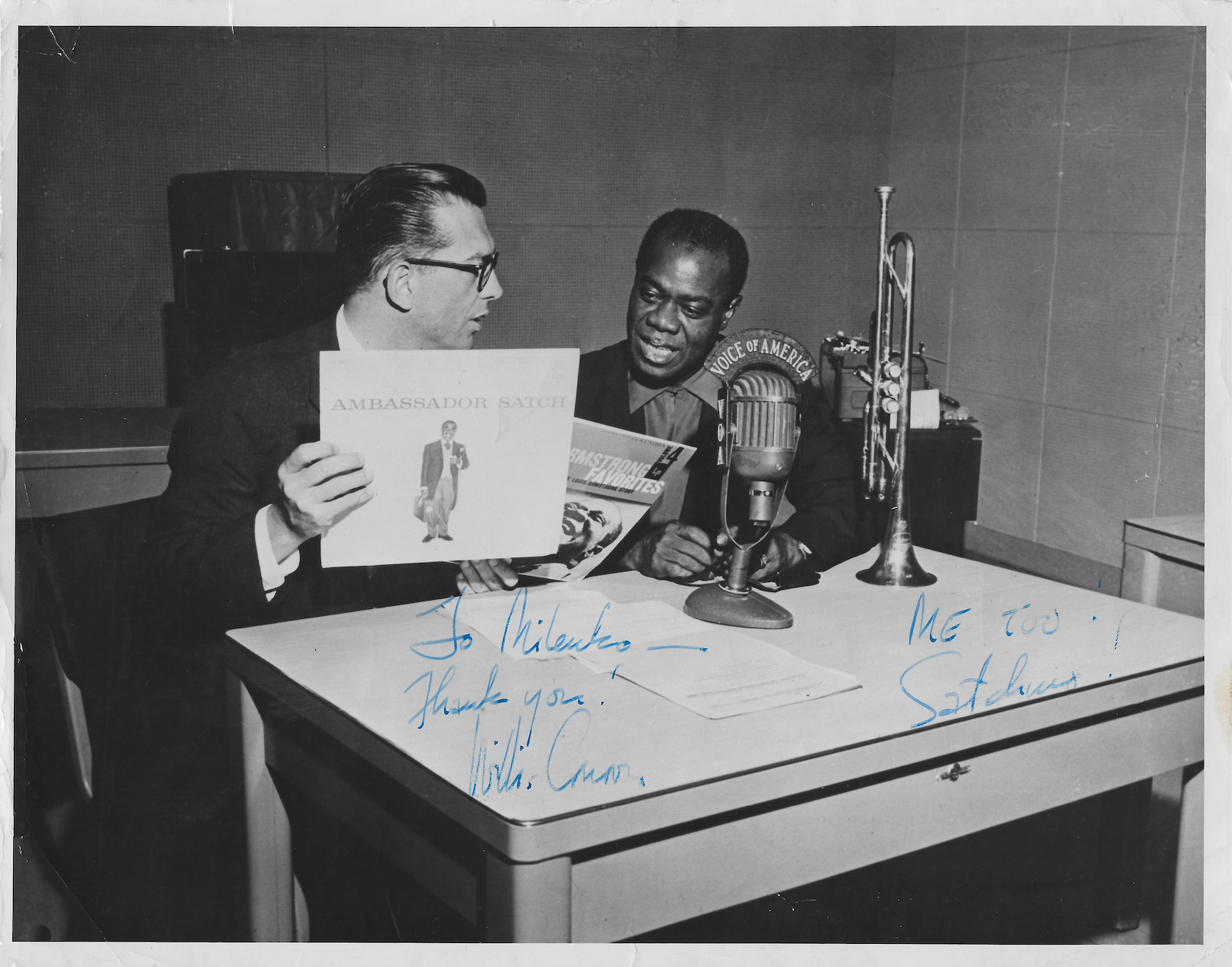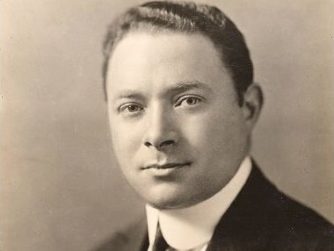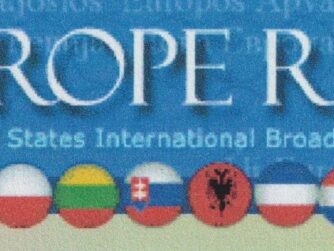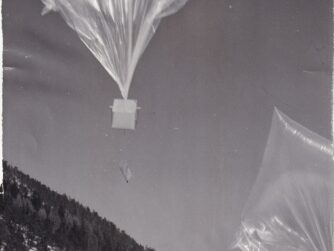Ted Lipien for Cold War Radio Museum
News reports that Poland, in the latest Russia-West prisoner swap, handed over an alleged Russian spy, who had worked for the Voice of America (VOA) as one of its freelance journalists, exposed some of the methods of Russian spying similar to Soviet spying during the Cold War. One Polish media report stated that the alleged Russian spy, Pablo Rubtsov González, who denies all charges of spying, “published in Basque and Spanish media outlets (Gara, Público, laSexta) and collaborated with Voice of America and Deutsche Welle.” He holds dual Russian and Spanish citizenship.1 The exchange gave up several alleged Russian spies in exchange for innocent American journalists arrested and held hostage in Vladimir Putin’s Russia to intimidate foreign and Russian journalists. One of the American journalists imprisoned in Russia who were exchanged for Russian prisoners in the West, was Alsu Kurmasheva, a Radio Free Europe/Radio Liberty (RFE/RL) reporter who has dual American and Russian citizenship.2
This is not the first time alleged Russian spies have been reported to be working for the Voice of America as journalists, broadcasters, or research experts. Their usefulness was not mostly in obtaining secrets at the Voice of America, although, in the past, classified documents were handled by VOA officials and some journalists, but more in identifying potential recruits with greater access to classified information or gathering information on the opponents of the regime in power in Russia. Meduza, an independent Russian media outlet in exile, quoted an expert who said that the job of Russian spies can be to “identify people who can subsequently be recruited — and to find out about their personal lives.”3 NKVD, KGB, and Putin’s intelligence services have relied on spies and agents of influence who used their links with legitimate journalistic outlets to gain access and credibility. The Voice of America management said that, as a freelance contributor, Pablo Rubtsov González was not issued a VOA press card, but he could have pointed out to his author page on the main VOA English News website to impress legitimate journalists and other contacts by his affiliation with the U.S. government-funded news media outlet under management oversight by the U.S. Agency for Global Media (USAGM). The agency is the successor of other VOA’s parent U.S. government agencies: the Office of War Information (OWI) during World War II, the State Department’s public diplomacy department in the late 1940s and 1950s, the U.S. Information Agency (USIA), and the Broadcasting Board of Governors (BBG).

When the news of Pablo Rubtsov González’s expulsion from Ukraine and subsequent arrest in Poland emerged in February 2022, the Voice of America at first tried to hide the fact that he was a freelance reporter for VOA. The VOA management then tried to minimize his role by claiming that he had only provided “some video,” when, in fact, his VOA author page, since removed, listed several news reports, most of them concerning Russia, in which he voiced his observations and conclusions.4
I wrote in an op-ed for The Hill that with the link to González revealed, all VOA did was remove his reports from its website “out of the abundance of caution,” as its management claimed. However, VOA then produced several news reports presenting him as a victim of unjust detention and mistreatment by Polish authorities. In these reports, VOA extensively quoted statements from González’s lawyer, Gonzalo Boye, denying that his client is “a part of Vladimir Putin’s secret service. What VOA failed to report was that Boye has a record. He was convicted in the 1990s in Spain and sentenced to 14 years in connection with a kidnapping by the Basque terrorist group ETA, which during the Cold War enjoyed covert support from Soviet secret services. More recently, Boye was a lawyer for Edward Snowden, who leaked classified U.S. government documents and fled to Russia. When confronted by an outside journalist with information about Rubtsov González’s lawyer and Edward Snowden that was possibly significant for pointing to a link to the Russian government, the VOA management innocently said that its reporters and editors did not know about it. Even after Vladimir Putin warmly greeted Rubtsov González and other returning Russian prisoners at a Moscow airport, Voice of America editors declared that they had checked his news reports for VOA and found them “journalistically sound and balanced.” [Emphasis added] In reporting that Polish prosecutors filed espionage charges against Rubtsov González, several days after he was released from custody through a prisoner swap, Voice of America failed to mention his relationship to VOA.[VOA News, “Polish prosecutors file espionage charges against Russian-born man,” August 1, 2024, https://www.voanews.com/a/polish-prosecutors-file-espionage-charges-against-russian-born-man/7742856.html.[/efn_note]
Many current Voice of America officials, editors, reporters, and even some former VOA directors, do not know or do not want to believe that Soviet or communist spies and agents had worked for their organization, but they had. Sanford Ungar, former VOA Director who served during the Clinton administration and is now the Director of the Free Speech Project at Georgetown University, said in an online panel discussion in February 2022 that there was nothing to suspect there were communist agents at the Voice of America.5
But, as a Professor of History at Emory University, Harvey Klehr, and a Library of Congress historian, John Earl Haynes, showed in their book, Venona: Decoding Soviet Espionage in America (Yale University Press, 2000), secret Soviet intelligence messages monitored by the U.S. counterintelligence services as part of the Venona project contained “the unidentified cover names of several Soviet espionage contacts in the Office of War Information,” including one in the OWI French section.6 The Office of War Information was the wartime government agency in charge of the Voice of America language services and broadcasts from 1942 to 1945. They were part of the OWI’s Overseas Operations Branch in New York City.
When asked whether he knew that American novelist Howard Fast, the first Voice of America chief news writer and editor, became a Communist Party USA activist and received the 1953 Stalin Peace Prize, Sanford Ungar said that this was a “McCarthyite question.”
His remark did not stifle the discussion, in which Ungar later mentioned a New York Times reporter and a Pulitzer Prize winner, Walter Duranty. The latter, among the Western journalists in Russia, was the most famous denier of Stalin’s crimes, including the Holodomor deaths of several million Ukrainians from forced starvation. Duranty received his journalistic award in 1932, which the 2002-2003 Pulitzer Prize Board—whose membership reads like Who’s Who in journalism, media industry, U.S. government service, NGOs, and academia—refused to revoke. Current USAGM CEO and former VOA Director Amanda Bennett was a member of the 2002-2003 Pulitzer Prize Board. Ungar somewhat reluctantly agreed that Fast’s communist ties were true, adding that Fast was duped by the Soviets and later broke with Communism. But, in addition to Fast, there were many other Walter Durantys at the Voice of America in its early years, some in more senior and many in lower-level broadcasting positions – one of many embarrassing facts the organization’s management has tried to hide for decades.
The Venona cables show that the KGB used an agent, codename “Philosopher” (OWI French section), for “providing background information and character appraisals – of OWI personnel.” The Venona project also revealed Flora Don Wovschin (codename “ZORA”), born in 1923 in the United States to Russian immigrant parents, as the most active Soviet agent in the Office of War Information, where she worked in New York as a research assistant and librarian during World War II in the Overseas Branch producing Voice of America broadcasts.
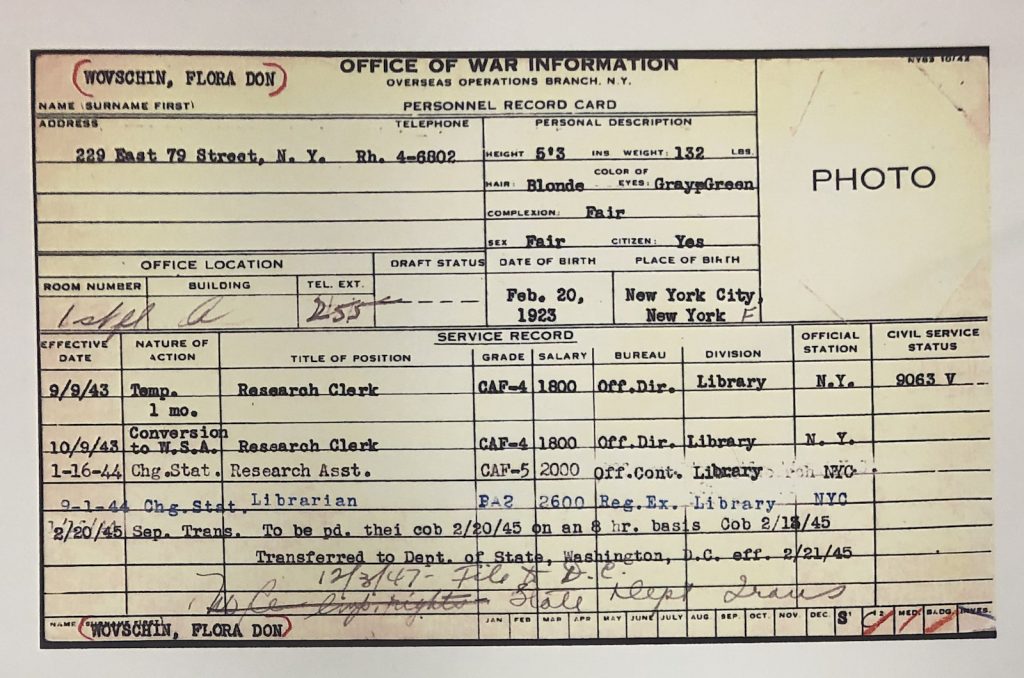
Flora Wovschin may have been the most active Soviet spy at the Office of War Information and the Voice of America, but she was not the most important Soviet agent of influence. The Kremlin’s most important agents of influence, although not necessarily the recruited ones, were some of the top OWI and VOA leaders and editors like Howard Fast, although Wovschin may have been able to influence them through her programming research. Wovschin recruited at least two or three other agents outside the OWI, including a Barnard College fellow graduate, Judith Coplon, who became a valuable KGB asset. Coplon started working in the US Department of Justice and transferred to the Foreign Agents Registration section, where she had access to U.S. counter-intelligence information, which she passed to her Soviet handler Valentin Gubitchev, a KGB official employed by the United Nations. FBI arrested her in March 1949 while she was carrying what she believed to be secret U.S. government documents. FBI had placed them in her office, hoping that she would try to give them to Gubitchev. She was convicted in two separate trials and sentenced to ten years, but her convictions were overturned on appeal because FBI agents had lied under oath about their electronic surveillance of the accused. The appellate court in New York concluded, however, that she was guilty. The conclusive evidence about her, Flora Wovschin, and Marion Davis found in the Venona cables was not presented at Judith Coplon’s trial because of its highly classified nature. While Flora Wovschin herself did not produce especially useful intelligence for the Soviet Union while she worked at the Office of War Information and the State Department, her recruitment of Judith Coplon gave the Russians access to highly valuable U.S. counter-intelligence secrets.
At first, Wovschin continued to impress the KGB with her productivity, but later the headquarters in Moscow concluded that she was becoming careless, violated KGB security rules, and was initiating too many risky contacts. At one point, the KGB threatened to break contact with her if she did not curtail her spy recruiting activities.
Flora Wovschin’s immigrant family seemed to be well off financially in America. Her father, Dr. William A. Wovschin, was a captain in the U.S. Army during World War I. Both her mother, Maria Wicher (cover name DASHA), and her stepfather, Enos Regnert Wicher (cover name KEEN), were Communist Party USA activists and appear in deciphered Venona messages as KGB contacts. Enos Wicher, who worked for the Wave Propagation Group of Columbia University’s Division of War Research, provided information on American military electronics.7
Flora Wovschin graduated from Barnard College and also studied at the University of Wisconsin School of Journalism. She is listed as WOVSCHIN, FLORA RHODA” in the Barnard College Mortarboard 1942 Senior Yearbook roster on page 190, and on page 160 as a member of the French Club. In February 1941, when Stalin and Hitler were still allies, she strongly opposed U.S. aid to Britain, following closely the Soviet and Communist Party USA propaganda line at that time. The Barnard Bulletin student newspaper issue of February 21, 1941, four months before Germany’s sudden attack on its former Soviet ally, quotes her as saying in a student debate that President Roosevelt’s Lend-Lease Bill to allow the transfer of U.S. arms to Great Britain has the support of American “warmongers.”
Flora Wovschin claimed that Hitler’s plan of “presenting a lie so monstrous that the people are confused” in attempting to propagandize a false doctrine, is being used by warmongers in the U.S. today. She dismissed as absurd the slogan popularized by press and radio that “Aid to Britain is the way to keep America out of war.” The Lease-Lend Bill (sic), said the speaker, has the support of crooked political machines and industrialists, such as munitions makers, who have profited enormously by the war so far.8
Interestingly, some of the positions taken by the American Student Union, which Flora Woschin represented at the debate, with the exception at that time concerning support for Britain, were quite similar to the Office of War Information pro-Soviet propaganda in the later phases of the war. The article said that the ASU “proposes the cooperation of this country with existing non-belligerents, the strongest of whom is the Soviet Union, towards the strengthening of democracy and the promotion of the ‘people’s peace’ and the setting up of ‘people’s governments’ in the nation’s now at war.” The Lend-Lease Act was enacted on March 11, 1941, and eventually benefitted the Soviet Union after Germany attacked its former Soviet ally on June 22, 1941. Nazi Germany’s attack on the Soviet Union led to an immediate change in the Soviet and Communist Party USA propaganda line about U.S. aid to Britain and to Russia.
In 1942, Flora Wovschin was elected president of the newly formed Social Science Club at her college. The October 1, 1942 issue of Barnard Bulletin student newspaper has her front-page article about an interview she conducted with a Soviet student leader, Nikolai Krasavchenko, who was invited to visit the United States. The article is titled, “Soviet Student Leader Describes His Country’s War Against Nazism: Nikolai Krasavchenko, interviewed by Bulletin, Tells of Nazi Horrors, Studen Heroism.”9
The Barnard College Alumnae Magazine reported in October 1944 that “Flora Wovschin works with the O.W.I. in the Overseas Branch in New York. She is in the research section….” The March 1956 Barnard College Alumnae Magazine reports her as “Lost,” whereabouts unknown. In 1984, the Class of ’43 editor was still seeking information about Flora Wovschin.
Wovschin’s Office of War Information records, stored at the National Personnel Records Center of the National Archives in St. Louis, MO., show that she “wrote research reports for the various units of OWI Overseas Branch, for Basic News, Military Desk, Publications, etc.” They included: “Background on the Curzon Line; The Hungarian-Rumanian Controversy Over Transylvania; Economic and Political Background on East Prussia; Political and Diplomatic Background on the German Invasions of Holland, Belgium, France, Norway, Poland; Reports on Bulgarian, Rumanian, Hungarian; Military and Economic aid to Germany.”
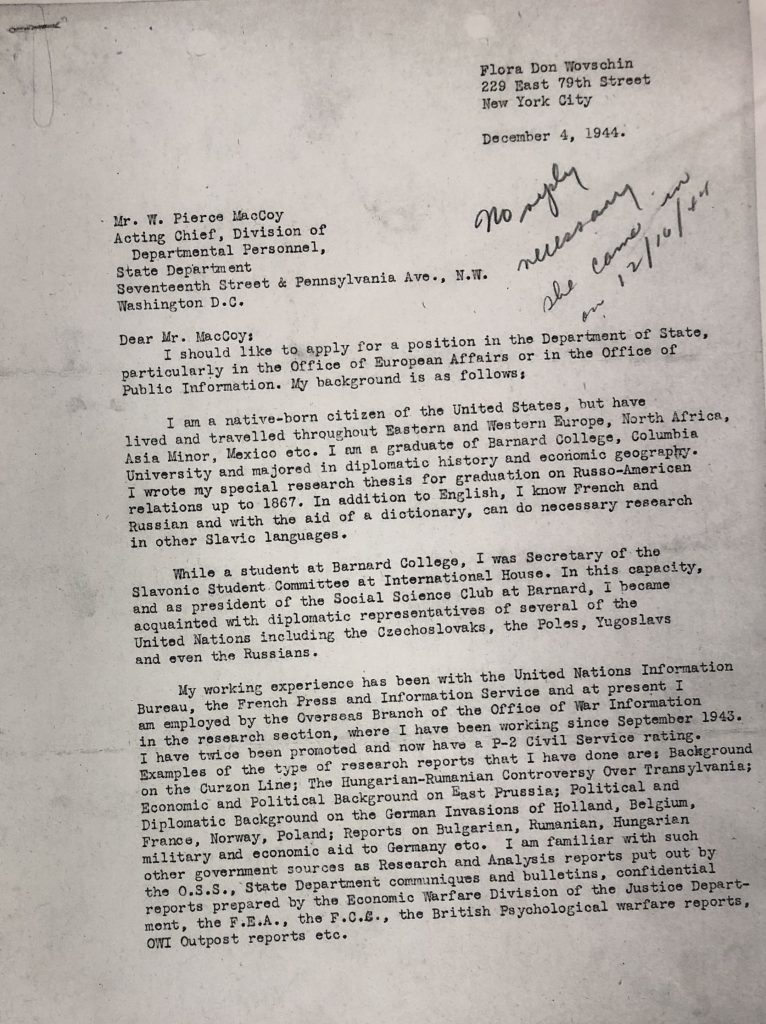
She was fluent in French, spoke Russian, and could use any of the Slavic languages. In 1945, she transferred from the OWI to the State Department, where she worked in the International Information Division as a divisional assistant until September 1945. According to a Venona cable dated “28 March 1945,” she was given by another Soviet spy within the U.S. government “the task of trying to get in the RADIO STATION [RATsIYa] about Swiss-German financial operations.” “RATsIYa” was the code name for the Office of War Information, including the Voice of America.
Haynes and Klehr wrote in their Venona book that when, after the war, the FBI started efforts to identify who was the spy at the Office of War Information and to find her, Wovschin fled in 1946 or 1947 to the Soviet Union, where she renounced her American citizenship and married a Russian engineer. The FBI received information that Wovschin later had gone to North Korea to work as a nurse and had died there.10
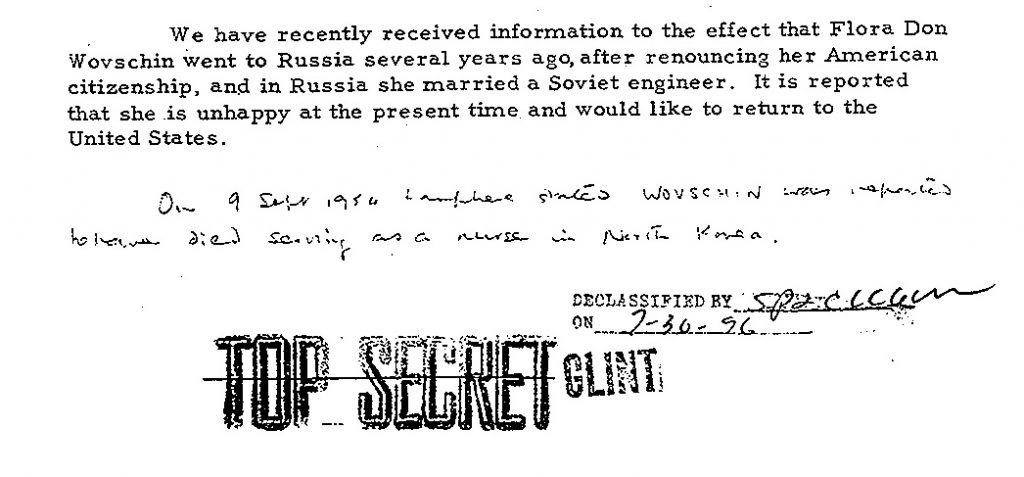
Declassified FBI documents in the investigation of Judith Coplon contain more detailed and slightly different information about Flora Wovschin’s personal life and her departure to the Soviet Union than what Haynes and Klehr included in their Venona book. When they wrote their book, the FBI’s file on Judith Coplon was still classified. The additional information came from the FBI’s interview with Wovschin’s friend, Marion Davis Berdecio, whom Wovschin also had recruited to be a Soviet agent. During World War II, Marion Davis worked for the Office of the Coordinator of Inter-American Affairs (CIAA), which was in charge of radio broadcasting and other information outreach to Latin America. President Roosevelt did not give the Office of War Information and its Voice of America radio operation to target Latin America. FDR kept information outreach to Latin America in the CIAA headed by his appointee Nelson Rockefeller.
The Venona project cables confirm Marion Davis Berdecio’s recruitment by Flora Wovschin to be a Soviet spy. Berdecio told the FBI in 1957 that “WOVSCHIN’s mother had told her that she had received a death certificate from the USSR attesting that FLORA DON WQVSCHIN had died of pneumonia in Vladivostok. Davis Berdecio confirmed to the FBI that “FLORA DON WOVSCHIN was her best friend during their school days.”11 They both attended Fieldston High School, Barnard College, and the University·of Wisconsin.
Even more detailed information came from Wovschin’s mother, Maria Wicher, who told the FBI that her daughter was married in 1946 to Nikolai Karpekov, an employee of the Amtorg Trading Corporation in New York City which facilitated trade between the United States and the Soviet Union and provided cover for Soviet spies. Wicher stated that a Russian official performed the marriage at the Soviet Consulate in New York City and the couple sailed for Russia on July 19, 1946.12
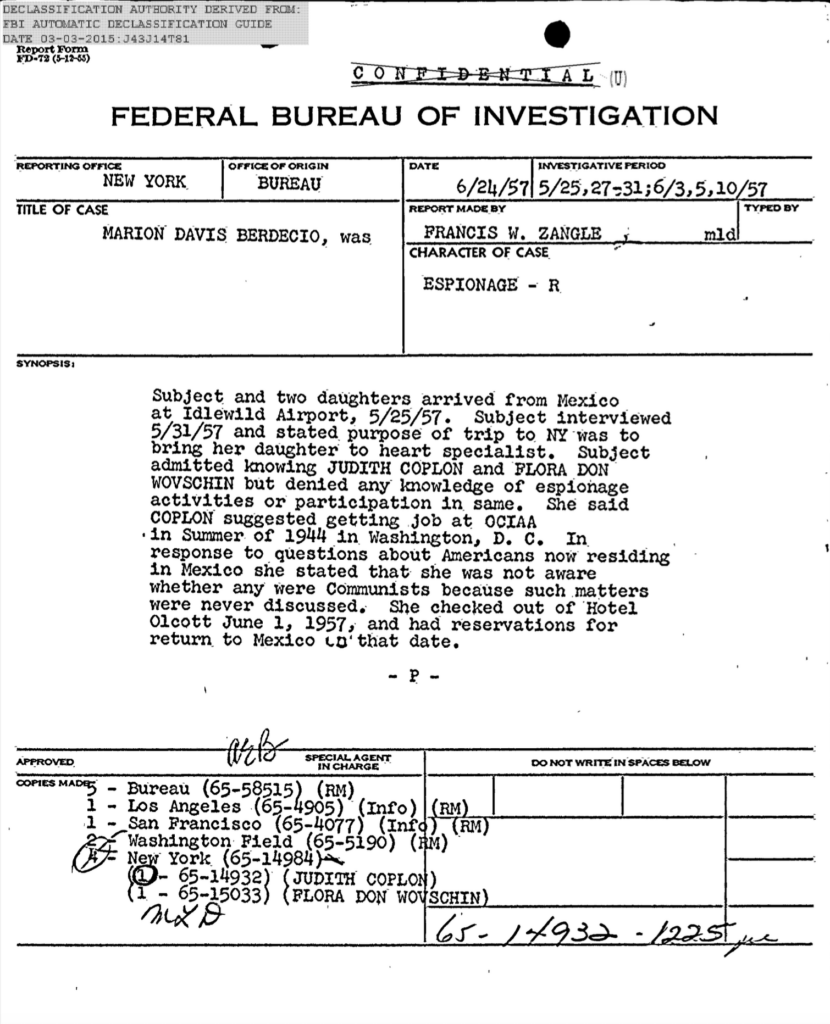
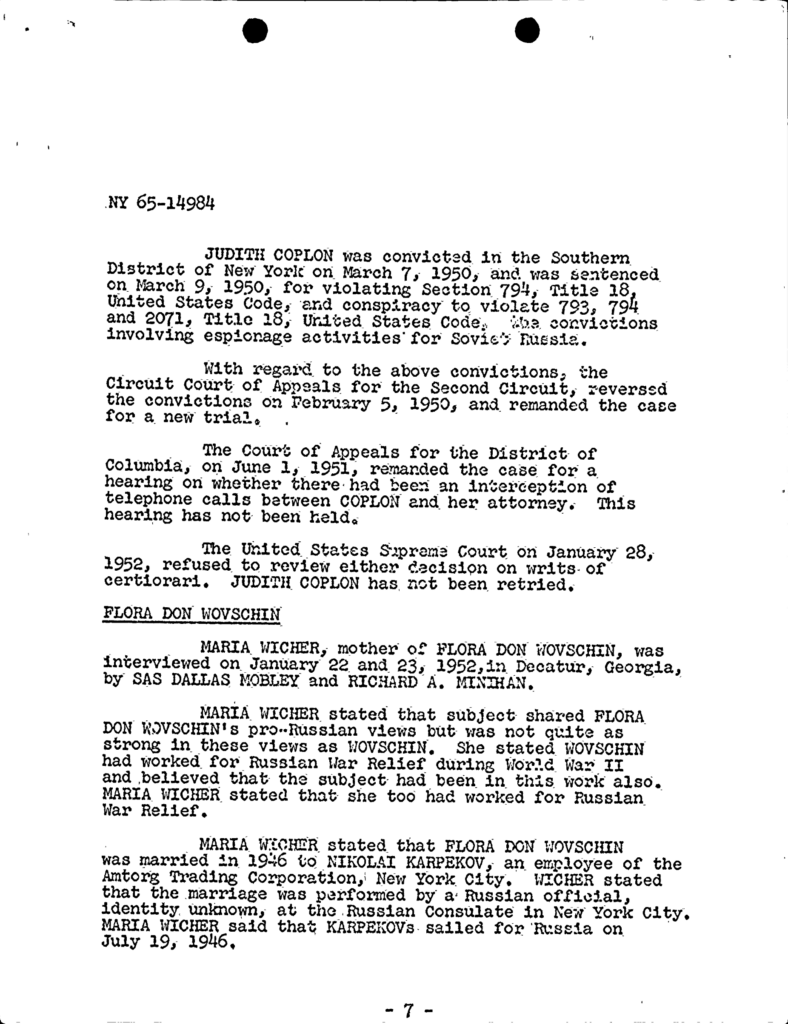
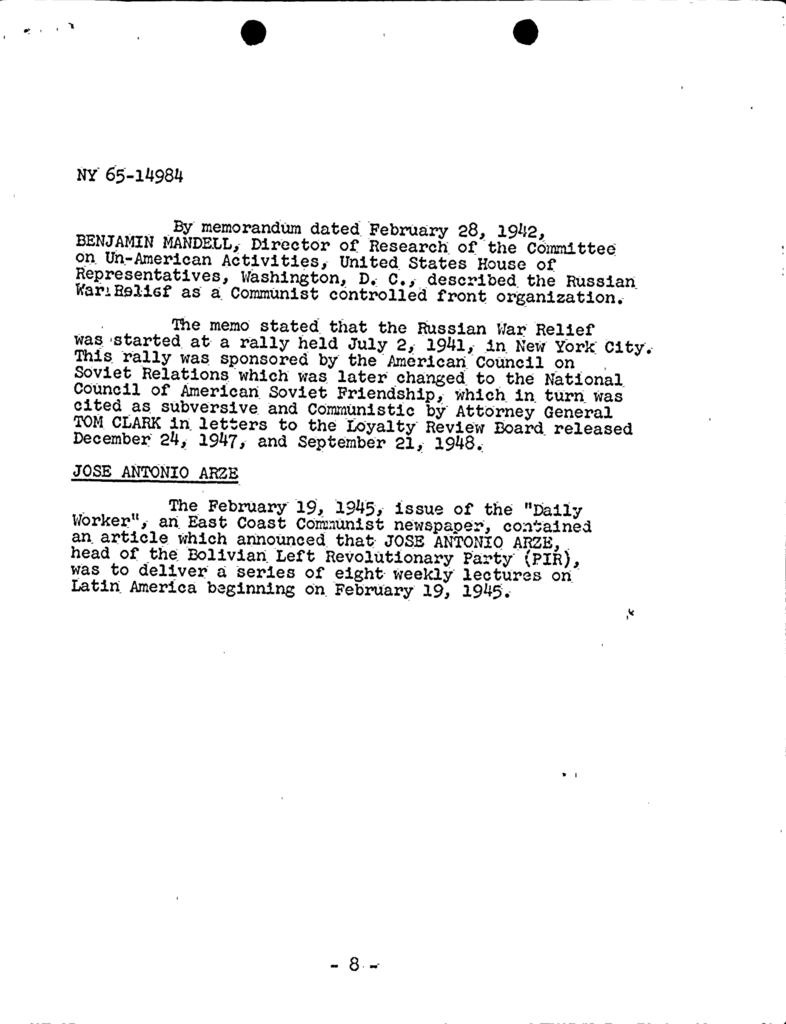
A message to Moscow from Communist Party USA leaders marked “TOP SECRET” – Document 74 – found by Western scholars in the Soviet archives in the 1990s, leaves no doubt that the Soviet intelligence service also had other spies in the information departments of the Office of Strategic Services (OSS), which later became the Office of War Information and employed Flora Don Wovschin in the library and research department serving the OWI staff in New York, including Voice of America officials and programmers. The Soviet spies listed in the document found in the Soviet archives worked in the Voice of America foreign language services during World War II.
Document 74
Ryan to Dimitrov, enclosed in Fitin to Dimitrov, 1 June 1942, RTsKhIDNI 495-74-484. Original in Russian. TOP SECRET…
We are in contact with the department of foreign propaganda and with the information coordinator of the US. That department is one of the three departments in the so-called Donovan Committee and is directly controlled by the White House. We also have several persons working in the Czech and Italian radio-broadcast sections, although not in the overall program. We consider it expedient to prolong that contact and keep these persons in the radio-broadcast section, if, of course, you are in agreement.13
Ryan was Eugene Dennis, a Comintern agent in the United States who became general secretary of the Communist Party USA in 1945 and led the party until 1959. Pavel Mikhailovich Fitin was the head of the foreign intelligence directorate of the NKVD from 1940 to 1946. Georgi Dimitrov, a Bulgarian Communist, was the head of the Comintern until its dissolution in 1943.
Another document in the Comintern archives, a year-end report on the 1942 Communist Party activities and financing of an espionage network refers to another agent, Saito, “hired by the O.W.I. (Office of War Information) which is the government department of propaganda which among other functions prepares radio broadcasts to Japan and similar propaganda materials for Axis countries and occupied countries.” The Communist Party USA report to Moscow also stated that “There are reliable Chinese comrades and others who have been invited by O.W.I. for such work.”14
In their book, The Venona Secrets, Herbert Romerstein and Eric Breindel, mention another Soviet agent in the Office of War Information who was later active in KGB actions taken against Soviet defector Victor Kravchenko. She was Christina Krotkova, Venona code name “Ola.” Although Kravchenko’s death in 1966 was ruled a suicide, KGB knew where he was hiding after his defection and doubts remain about the circumstances of his death.15 More than 30 of Kravchenko’s relatives in the Soviet Union were killed as a reprisal for his defection.16 Russian experts quoted in the Meduza article about Pablo Rubtsov González said that alleged gathering of information about “Putin’s opponents, who were later poisoned and thrown in prison” was useful to the Kremlin.
An especially dangerous Polish communist security service agent, Zbigniew Brydak, succeeded in finding employment in the Polish branch of the Voice of America in Munich in the early 1950s. He was also an occasional contributor to RFE Polish Service programs. While spying on VOA and RFE journalists, Brydak made attempts to lure a young Radio Free Europe journalist Marek Walicki out of the West so that the authorities of the People’s Poland could capture him. Walicki, who later worked for the Voice of America in Washington and was my deputy in the Polish Service in the 1980s, immediately saw through Brydak’s ploy and shared his suspicions about his former scoutmaster in Poland with RFE Polish Service director Jan Nowak, who declined to give Brydak a full-time job. He then found full-time employment with the Voice of America.
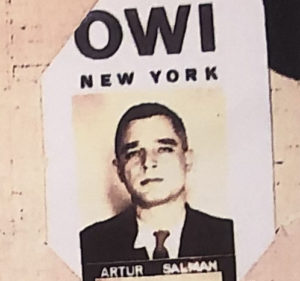
Walicki wrote in his memoir, Z Polski Ludowej do Wolnej Europy (From People’s Poland to Free Europe), that even before his spy mission to the West, Brydak recruited several young Poles to join a fictitious anti-communist scouting group, and – “when there were no more candidates – he handed them over to the torturers of the communist security service.” Exposed as a spy, detained by the Americans but later released, Brydak returned from West Germany to the People’s Republic of Poland. He engaged in pro-regime and anti-Western propaganda in Poland, writing articles for the “Świat” magazine, edited by Stefan Arski, also a former Voice of America broadcaster and editor who had worked for VOA in New York until 1947. The Office of War Information hired Arski during the war under his real name, Artur Salman. While employed by the U.S. government, Arski was in contact with Oskar Lange, a Soviet agent of influence and the future first ambassador in Washington of the People’s Republic of Poland, and with Bolesław Gebert, a Soviet intelligence agent and the future ambassador in Turkey for the Warsaw regime. Both Lange and Gebert are identified under their code names in the Venona cables.
Fearing dismissal as part of President Truman’s efforts to remove pro-Soviet influence at the station, Arski resigned from the Voice of America. After a short association with the Embassy of the Polish People’s Republic in Washington as the writer of a policy booklet on the issue of the Polish-German border, he returned to Poland, joined the Polish United Workers Party, and was one of the country’s most prominent pro-regime and anti-Western propagandists. He wrote articles and books denouncing journalists of Radio Free Europe and Voice of America. He also strongly criticized the bipartisan efforts in the U.S. Congress in the early 1950s by the Madden Committee, named after its chairman, Rep. Ray Madden (D-IN), to reveal the truth about the Katyn massacre of thousands of Polish POW military officers and intellectual leaders in Soviet captivity. In its final report issued on December 22, 1952, the bipartisan Madden Committee of the U.S. House of Representatives condemned pro-Soviet Russia reporting and censorship by the Office of War Information and the Voice of America.
As the Cold War intensified, Truman and more members of Congress from both parties concluded that the Office of War Information and the wartime VOA broadcasts had been tainted by Soviet propaganda that harmed America’s long-term international reputation, its national interests, and security. The agency was doomed by the incompetence of its leadership, their ideological fascination with Soviet Russia, poor security, which allowed the hiring of Communists and other radicals, and ultimately Stalin’s betrayal of the empty promises he made to Roosevelt and Churchill at Teheran and Yalta to get their approval for border changes and for Russia’s dominance over Eastern Europe.17
Like Arski, whom Marek Walicki mentions in his book in connection with the Brydak spying scandal, another former Voice of America editor, Mira Złotowska Michałowska, whom he does not mention, also returned to Poland after the war. She married a high-ranking communist diplomat, later the Warsaw regime’s ambassador in Great Britain and the United States. She translated books by the former VOA chief news writer and editor Howard Fast. Another of Fast’s former work associates at the Voice of America, the wartime VOA Czechoslovak Service chief, Adolf Hoffmeister, became the ambassador to France for the Stalinist regime in Prague, although he was later sidelined by the communist authorities and expelled from the Communist Party.
What the KGB and intelligence services of other communist nations wanted at VOA were not necessarily spies seeking America’s political and military secrets but witting or unwitting agents of influence. Soviet agents of influence at the OWI and the Voice of America during the war were far more numerous and much more valuable to the Kremlin than actual intelligence operatives. Some of the agents of influence occupied the most senior management positions, made critical programming decisions, and had access to President Roosevelt and other top U.S. government officials. A few of them were known to have had frequent contact with individuals who were later identified as active Soviet spies or important agents of influence outside of the OWI and the Voice of America. It was through them that the Soviet intelligence services were able to convince President Roosevelt and some pro-Soviet State Department diplomats that Stalin had become a friend of democracy and would respect the rights of religious believers. As Julius Epstein, a former OWI German desk editor, and internationally-published journalist who escaped from Nazi Europe wrote in 1950, the Voice of America was engaged in promoting “Love for Stalin.”
There are still too many of the old OWI [Office of War Information] employees working for the Voice, both in this country and overseas. I mean those writers, translators and broadcasters who so wholeheartedly and enthusiastically tried for many years to create ‘love for Stalin,’ when this was the official policy of our ill-advised wartime Government and of our military government in Germany. There is no doubt that all those employees were at that time deeply convinced of the absolute correctness of that pro-Stalinist propaganda. How can we expect them to do the exact opposite now?18
Epstein, who was sympathetic to Communism in his youth and briefly joined the Communist Party in Germany before becoming an anti-communist, realized that extreme pro-Stalin propagandists were an influential group in the U.S. agency that started producing Voice of America broadcasts.
When I, in 1942, entered the services of what was then the “Coordinator of Information,” which became after a few months the O.W.I., I was immediately struck by the fact that the German desk was almost completely seized by extreme left-wingers who indulged in a purely and exaggerated pro-Stalinist propaganda.19
Epstein, a Jewish refugee in America with liberal, pro-socialist views who escaped the Holocaust and published anti-Nazi articles in European and American newspapers and magazines, hardly fit the description of a white supremacist critic of U.S. government broadcasts.
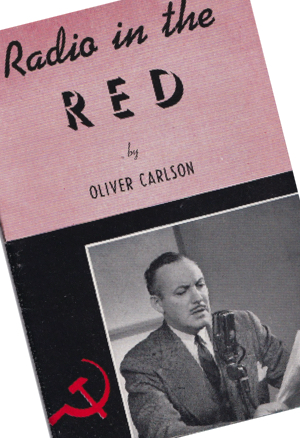
Another ex-Communist who turned anti-communist and exposed Soviet influence at the Office of War Information was Oliver Carlson, an American writer, journalist, founder of the Young Communist League of America, and lecturer at the University of Chicago. His description of pro-Soviet propaganda by the OWI was similar to Julius Epstein’s observations.
During the War Years — and largely with government blessing — the Communists moved en masse on the radio, as they did on the movies and the press to help “sell” the American people on the virtues of our Soviet ally. The idea officially projected through such organizations as the O.W.I., was to cure “misunderstanding” of Soviet Russia, which was suddenly discovered to be a “democracy” and a noble social experiment.20
Carlson knew that the Office of War Information produced such propaganda not only for overseas audiences through the Voice of America but also for domestic audiences in the United States until Congress eliminated most of its domestic propaganda budget in 1943. Carlson wrote about domestic OWI propaganda programs, which were essentially the same as VOA programs.
Tens of millions of radio listeners were deluged with streamlined and dramatic presentations to prove that any talk of Russia as a ruthless dictatorship was a “reactionary plot, The Bolshevik regime, it turned out, was just a Russian version of our own War for Independence, Lenin a Russian replica of George Washington, Stalin a compendium of Jefferson, Jackson and Lincoln.21
NOTES:
- Anna Gielewska (VSquare). Collaboration: Anastasiia Morozova, Daniel Flis, Wojciech Cieśla (FRONTSTORY.PL), Michael Weiss (The Insider), “The Putin Magnet: The GRU Spy and the Women Who Loved Him,” VSquare, August 12, 2024, https://vsquare.org/pablo-gonzalez-pavel-rubtsov-gru-spy-women-russia-poland-spain-putin/.
- Ted Lipien, “How Voice of America’s poor leadership entangled it in a spy scandal,” The Hill, August 5, 2024, https://thehill.com/opinion/national-security/4810862-voa-talent-security-loopholes/.
- Meduza, “Reintroducing Pablo: How a GRU spy infiltrated the Russian opposition, wound up in a Polish prison, and returned to Moscow in a historic prisoner swap,” August 19, 2024, https://meduza.io/en/feature/2024/08/19/reintroducing-pablo.
- Ted Lipien, “How Voice of America’s poor leadership entangled it in a spy scandal,” The Hill, August 5, 2024, https://thehill.com/opinion/national-security/4810862-voa-talent-security-loopholes/.
- Ted Lipien, “A Stalin Peace Prize Laureate Still Waiting for Acknowledgement of His Soviet Agent of Influence Role at Voice of America, Cold War Radio Museum, November 7, 2022, https://www.coldwarradiomuseum.com/a-stalin-peace-prize-laureate-still-waiting-for-acknowledgement-of-his-soviet-agent-of-influence-role-at-voice-of-america/.
- John Earl Haynes and Harvey Klehr, Venona: Decoding Soviet Espionage in America, Yale Nota Bene (New Haven: Yale Univ. Press, 2000), pp. 197-199.
- John Earl Haynes and Harvey Klehr, Venona, p. 198.
- Barnard Bulletin, “Opposing Views Debate U.S. Policy: ASU, WAW Proponents Discuss Aspects of Assistance to Britain,” Vol. XLV, No. 25, February 21, 1941, pp. 1 and 3, https://digitalcollections.barnard.edu/object/bulletin-19410221/barnard-bulletin-february-21-1941.
- Flora Don Wovschin, “Soviet Student Leader Describes His Country’s War Against Nazism: Nikolai Krasavchenko, interviewed by Bulletin, Tells of Nazi Horrors, Student Heroism,” Barnard Bulletin, Vol. XLVII, No. 2, October 1, 1942, https://digitalcollections.barnard.edu/object/bulletin-19421001/barnard-bulletin-october-1-1942.
- Haynes and Klehr, Venona, pp. 200-201.
- Federal Bureau of Investigation, Confidential memorandum declassified March 3, 2015 “Marion Davis Berdecio,” June 24, 1957.
- Ibid.
- Harvey Klehr, John Earl Haynes, and Fridrikh Igorevich Firsov, The Secret World of American Communism (New Haven and London: Yale University Press), pp. 272-273.
- Klehr, Haynes, and Firsov, The Secret World of American Communism, pp. 210-211.
- Herbert Romerstein and Eric Breindel, The Verona Secrets: Exposing Soviet Espionage and America’s Traitors (Washington: Regnery Publishing, Inc., 2000), p. 366.
- Mitchell Landsberg, “Searching for Tato”, Los Angeles Times, May 11, 2003.
- The bipartisan Select Committee of the House of Representatives to Conduct an Investigation and Study of the Facts, Evidence and Circumstances of the Katyn Forest Massacre, also known as the Madden Committee after its chairman Ray J. Madden (D-Indiana), said in its final report released on December 22, 1952: “In submitting this final report to the House of Representatives, this committee has come to the conclusion that in those fateful days nearing the end of the Second World War there unfortunately existed in high governmental and military circles a strange psychosis that military necessity required the sacrifice of loyal allies and our own principles in order to keep Soviet Russia from making a separate peace with the Nazis.” See Select Committee to Conduct an Investigation and Study of the Facts, Evidence and Circumstances of the Katyn Forest Massacre, The Katyn Forest Massacre: Final Report(Washington: United States Government Printing Office, 1952), pp. 11-13, https://archive.org/details/KatynForestMassacreFinalReport. The committee added: “For reasons less clear to this committee, this psychosis continued even after the conclusion of the war. Most of the witnesses testified that had they known then what they now know about Soviet Russia, they probably would not have pursued the course they did. It is undoubtedly true that hindsight is much easier to follow than foresight, but it is equally true that much of the material which this committee unearthed was or could have been available to those responsible for our foreign policy as early as 1942.” Ibid. The Madden Committee also said in its final report in 1952: “This committee believes that if the Voice of America is to justify its existence, it must utilize material made available more forcefully and effectively.” Ibid. Members of Congress criticized the Office of War Information director, Elmer Davis, for his role in enabling the spread of Soviet fake news through the Voice of America. Still, later the whole incident was forgotten and became part of the Katyn cover-up. The bipartisan select committee of the House of Representatives, which conducted the investigation of the Katyn Forest massacre, concluded in 1952 that Davis was responsible for repeating false Soviet propaganda through the Voice of America and domestic radio networks in the United States: “Mr. Davis, therefore, bears the responsibility for accepting the Soviet propaganda version of the Katyn massacre without full investigation. A very simple check with either Army Intelligence (G- 2) or the State Department would have revealed that the Katyn massacre issue was extremely controversial.” Ibid. p. 9.
- Journalist Julius Epstein quoted by Congressman George A. Dondero (R-MI) in Congressional Record, August 9, 1950. The quote was from the article which was published in the Evening Star Washington newspaper on August 7, 1950. Congressional Record: Proceedings and Debates of the 81st Congress, Second Session, Appendix. Part 17 ed. Vol. 96. August 4, 1950, to September 22, 1950. Washington, DC: United States Government Printing Office, 1950, pp. A5744-A5745.
- Julius Epstein, “The O.W.I. and the Voice of America,” a reprint from the Polish American Journal, Scranton, Pennsylvania, 1952.
- Oliver Carlson, Radio in the Red (New York: Catholic Information Society, 1947), p. 7.
- Carlson, Radio in the Red, p. 7.




